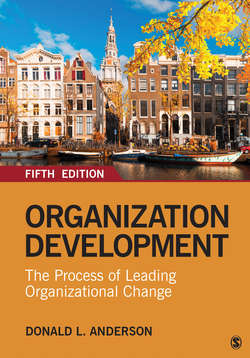Читать книгу Organization Development - Donald L. Anderson - Страница 59
На сайте Литреса книга снята с продажи.
Statement of Organization Development Ethics
ОглавлениеEthics follow from values in guiding practitioners in how to implement and enact values. Ethical beliefs outline more and less desirable behaviors, based on a set of underlying values such as those defined above (White & Wooten, 1985). In a survey of organization development and human resources professionals in the early 1980s, practitioners admitted that there was no widespread definition of ethics for the field. Several scholars collaborated on an early draft of a statement, which was further revised. An annotated version was published in a book in 1990 by William Gellermann, Mark Frankel, and Robert Ladenson. The statement of ethical guidelines for OD professionals is reprinted in the appendix to this chapter. This statement contains many of the categories of OD values discussed earlier in this chapter, including client-centered values.
This clear statement of ethics has many followers and will be a useful guide for you throughout this book. Ethical conflicts do occur for OD professionals, and we will explore some of them in later chapters.
Summary
The values of organization development are a significant part of its identity, and they distinguish OD from other methods of consulting. Its values help practitioners with making choices about how to proceed in an intervention. They clarify our thinking and help to establish a dialogue with clients about what we value and why. They also provide a method for evaluating our work and give practitioners a larger purpose for their work. OD’s values include participation, involvement, empowerment, groups and teams, growth, development, learning, thinking of organizational members as whole people, dialogue, collaboration, authenticity, openness, and trust.
Recently, business effectiveness has been added to this list of humanistic concerns to include values such as quality, productivity, and efficiency, which some highlight as a potential conflict with OD’s humanistic values tradition. In any case, values conflicts do occur as OD practitioners must cope with economic and cultural forces that push them to see OD as a set of tools or intervention techniques and to neglect the values that underlie these techniques. Finally, a statement of OD ethics has been developed as an explicit statement of desired practitioner behaviors that are based on OD’s values.
